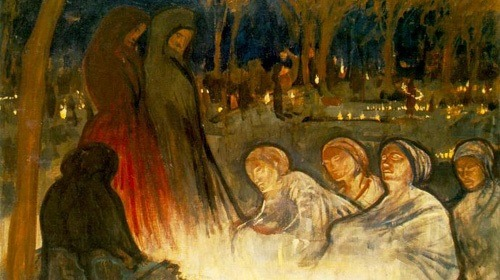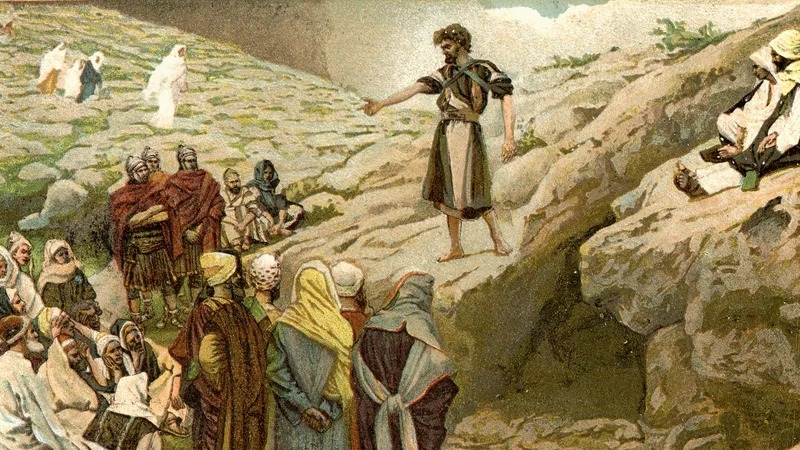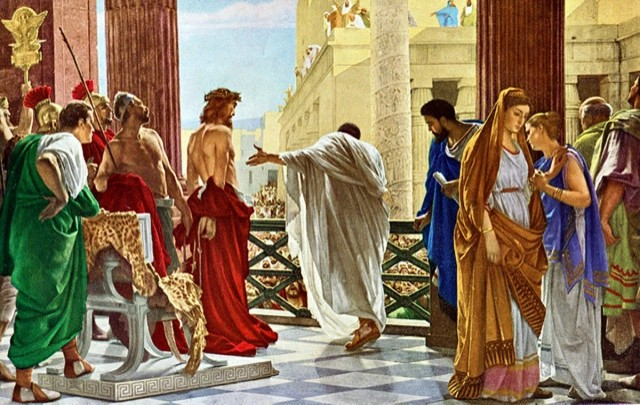𝟭 𝗧𝗶𝗺𝗼𝘁𝗵𝘆 𝟯:𝟭𝟲-𝟭𝟳 𝗔𝗹𝗹 𝗦𝗰𝗿𝗶𝗽𝘁𝘂𝗿𝗲 𝗶𝘀 𝗚𝗼𝗱-𝗯𝗿𝗲𝗮𝘁𝗵𝗲𝗱 𝗮𝗻𝗱 𝗶𝘀 𝘂𝘀𝗲𝗳𝘂𝗹 𝗳𝗼𝗿 𝘁𝗲𝗮𝗰𝗵𝗶𝗻𝗴, 𝗿𝗲𝗯𝘂𝗸𝗶𝗻𝗴, 𝗰𝗼𝗿𝗿𝗲𝗰𝘁𝗶𝗻𝗴 𝗮𝗻𝗱 𝘁𝗿𝗮𝗶𝗻𝗶𝗻𝗴 𝗶𝗻 𝗿𝗶𝗴𝗵𝘁𝗲𝗼𝘂𝘀𝗻𝗲𝘀𝘀, 𝘀𝗼 𝘁𝗵𝗮𝘁 𝘁𝗵𝗲 𝘀𝗲𝗿𝘃𝗮𝗻𝘁 𝗼𝗳 𝗚𝗼𝗱 𝗺𝗮𝘆 𝗯𝗲 𝘁𝗵𝗼𝗿𝗼𝘂𝗴𝗵𝗹𝘆 𝗲𝗾𝘂𝗶𝗽𝗽𝗲𝗱 𝗳𝗼𝗿 𝗲𝘃𝗲𝗿𝘆 𝗴𝗼𝗼𝗱 𝘄𝗼𝗿𝗸.
The Word of God, the Bible, has been denigrated. It has been assigned as a noteworthy set of writings, perhaps useful in their time. It has been the subject of humiliation and abrogation, canceling any importance it could have in the lives of readers. There are, of course, passages that are both puzzling and in need of contextual explanation. There are popular misinterpretations that have been co-opted to justify even the evilest doctrines and actions.
None of that sullies its intent and overall accomplishment in the lives of people of faith. It arrests sin, does not promote it. It corrects, does not condone. The righteousness it engenders testifies to the voice that speaks through the human lives used to record its words.
Paul was describing only the part of the Bible we call the Old Testament. He had the equivalent of a modern day PhD in theology and the Tenach (with the Jewish Talmud – rabbinic teachings) was his specialty. He had no way of knowing his letters to Timothy and the early churches would be incorporated into the canon – the books making up the New Testament. Yet his words here apply to his own writing.
Critics of the Bible – and they are nothing new as a group – harp on things like details (where the oral tradition was not as concerned) and historical accuracy (erecting their own criteria). All the while, combining their reading of the text with faith and being inquisitive as to its ability to teach and correct is avoided for reasons of fear (Hebrews 4:2). If the Bible had those attributes, it would imply change and repentance. Those things are not acceptable to devoted critics.

It is the proposition of scripture that humankind NEEDS teaching, rebuking, correcting and training in righteousness – and that, only from the hand of Almighty God. We are not righteous in ourselves, indeed so sinful that Jesus needed to die to set things right with His Father. That story is the primary one to allowing scripture to do its work – or rather, we could say it is the first work scripture does.
The sorrow of the unrealized fruit waiting for anyone who neglects the jewel which is the Bible is great, but it’s also waiting patiently to be discovered for all. I remain eternally thankful for its work in my life.








